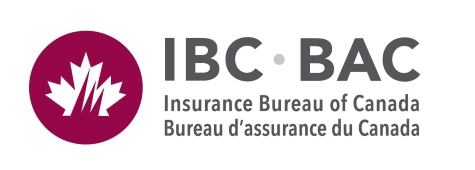New IBC study reveals the causes and costs of domestic oil spill claims in Atlantic Canada
Homeowners urged to take action to prevent costly and disruptive spills
HALIFAX, Aug. 30, 2012 /CNW/ - Be aware of the condition of your oil tank and talk to your insurance representative are two key suggestions for homeowners by Insurance Bureau of Canada (IBC) coinciding with the release of results of a new insurance industry study that provides a comprehensive snapshot of the causes and costs of domestic oil spill claims in Atlantic Canada.
"Oil spills are expensive and difficult to clean up, and the oil spill remediation process can have a dramatic impact on families forced to cope with this problem. Homeowners with oil tanks need to be aware of their tank's condition and age, and be diligent in having their tanks inspected regularly to ensure that they are well-maintained," says Bill Adams, Vice-President, Atlantic with IBC.
"If you have an oil tank, you need to do your homework and ask questions about your home insurance coverage," adds Adams.
Today IBC released results of the Industry Report on Atlantic Domestic Oil Spill Claims, which provides data on oil spills across Atlantic Canada, collected over a 4-year period. Some of the highlights of the study included:
- Newer tanks are not immune to tank failure. Of 663 domestic total oil spill insurance claims in Atlantic Canada between 2008 and 2011, 133 were made in situations where the tank was 0-5 years old and 293 claims were made in situations where the tank was between 6 and 10 years old.
- Over 50 per cent of spills reported were due to oil tank corrosion.
- Domestic oil tanks of all materials had failures reported, but the largest number of claims were reported for metallic tanks.
- Outside tanks were responsible for the largest number of insurance claims when looking at where the tank was installed.
Background (Full Results are available in the report on ibc.ca)
Link to report: http://www.ibc.ca/en/In_the_Community/documents/Oil%20Spill%20Report.pdf
IBC has the following tips for homeowners with oil tanks:
Here are some considerations homeowners should take into account when making decisions about how best to protect their property. Consumers should always consult maintenance and service professionals to ensure that the selection and maintenance of their tank for its intended and continued use complies with applicable provincial building code requirements.
Buying a new domestic oil tank:
- When buying a new tank, ask your supplier about the many different oil tanks on the market and what is known about their comparative performance.
- Ensure your tank is certified by the Standards Council of Canada (SCC) or the Underwriters Laboratories of Canada (ULC).
- Ensure the installation of your tank is done by a qualified professional and meets your provincial building code and/or regulations.
- Have a release barrier (drip tray) to help contain any leakage.
- Never buy a used tank. It's almost impossible to know what you're getting.
- Never transfer oil from your old tank into your new tank.
Maintenance:
- Have your oil tank inspected regularly by a heating service professional.
- Tanks exposed to the elements have a shorter life span. If possible, have your tank installed indoors or sheltered from the elements.
- Contact a heating service professional if there is moisture on the tank or if there is an odor of oil.
- Tank maintenance is your responsibility. Contact a professional to obtain assistance with maintenance.
- Conduct regular visual inspections of your tank. Look for signs of corrosion like rust lines and pit holes.
- If you're uncertain about the age or condition of your tank, call your fuel distributor to do a visual inspection.
- Ensure your fuel oil distributor is inspecting your tank when oil deliveries are made. Ask your supplier if this is part of the delivery service.
- Know the expected life span of your tank. Some provinces have regulations dictating when your tank must be replaced.
- If you own a metal tank, speak with your insurance representative about any stipulations in your home insurance policy regarding its replacement.
Domestic Oil Tanks and Your Home Insurance Policy
For more information on oil tanks and your home insurance policy click here:
http://www.ibc.ca/en/in_the_community/loss_prevention_tips/oil_spills.asp
About Insurance Bureau of Canada
Insurance Bureau of Canada is the national industry association representing Canada's private home, car and business insurers. Its member companies represent 90% of the property and casualty (P&C) insurance market in Canada. The P&C insurance industry employs over 114,000 Canadians, pays more than $7 billion in taxes to the federal, provincial and municipal governments, and has a total premium base of $40 billion.
To view media releases and information, visit the media section of IBC's website at www.ibc.ca and for IBC on Twitter follow @insurancebureau.
SOURCE: INSURANCE BUREAU OF CANADA
or to schedule an interview, contact:
Steve Kee
Director of Media Relations
Insurance Bureau of Canada
416-362-2031 ext. 4387
[email protected]

Share this article